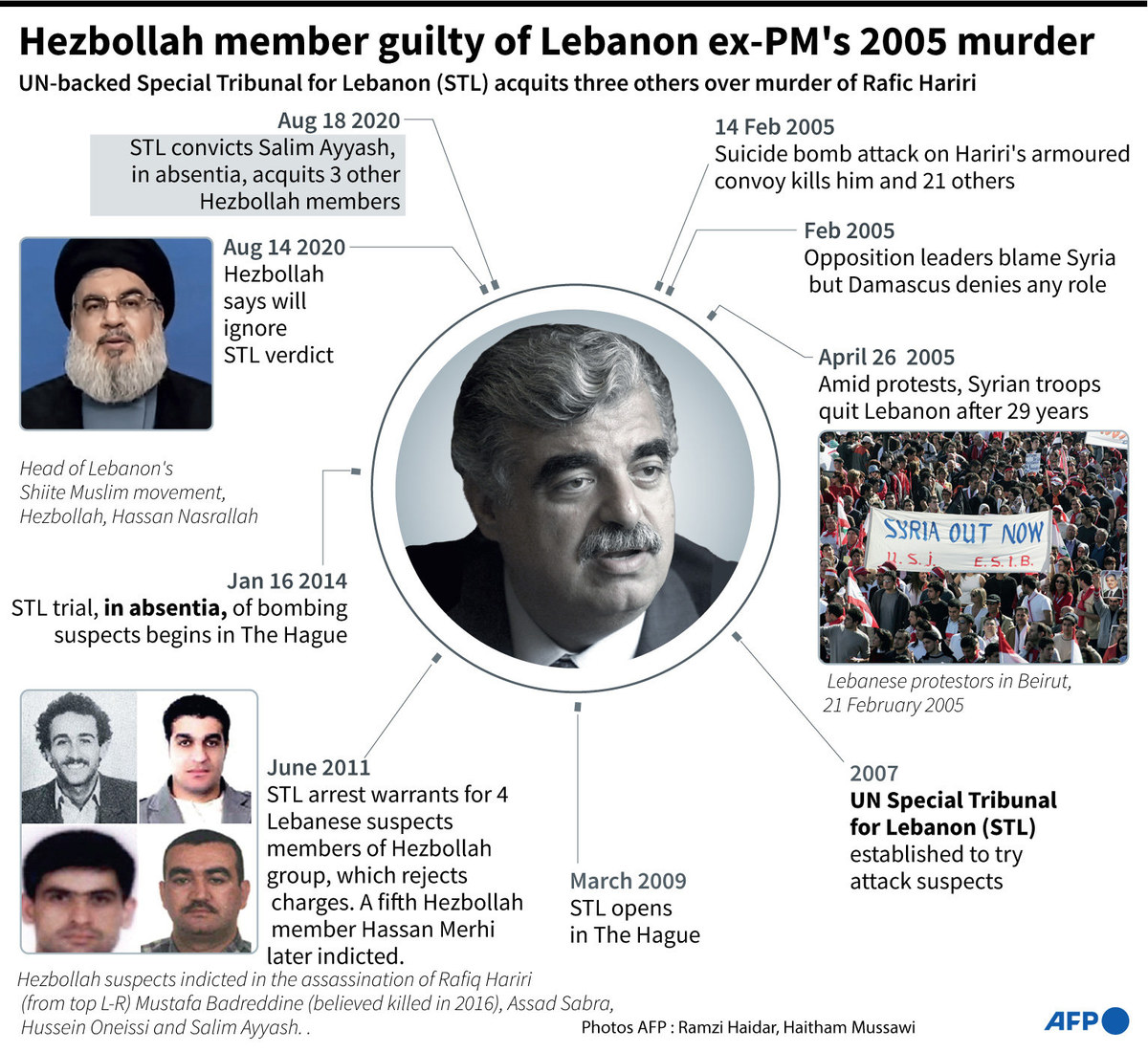UNITED NATIONS: Secretary-General Antonio Guterres has extended the mandate of the international tribunal that investigated the 2005 assassination of Lebanon’s former prime minister Rafik Hariri until the end of the year to complete non-judicial functions so it can cease operation.
UN spokesman Stephane Dujarric said Thursday that a completion plan, developed and agreed by the United Nations and the government of Lebanon, will guide the Special Tribunal for Lebanon to ensure the completion of its work by Dec. 31.
It includes preserving record and archives, responding to requests for information, and ensuring the protection and support of victims and witnesses who cooperated with its work, he said.
The tribunal’s mandate had been set to expire at the end of February.

Last June, appeals judges sentenced two members of the militant Hezbollah group to life imprisonment for their roles in the assassination.
Hassan Habib Merhi and Hussein Hassan Oneissi were tried in abstentia at the court near The Hague, Netherlands, and convicted on appeal in March of five crimes, including being accomplices to the intentional homicide of Hariri and 21 others, and the wounding of 226 others.
They were killed and injured when plotters detonated a huge truck bomb outside a hotel on Beirut’s seafront as Hariri’s motorcade drove past.
The tribunal’s president, Czech judge Ivana Hrdličková, told the court in June that Merhi and Oneissi were receiving life sentences for each of their five convictions and if they are ever captured and imprisoned, the sentences would be served concurrently.
Prosecutors appealed after the two men were acquitted in April 2020 following a lengthy trial that found another Hezbollah member, Salim Ayyash, guilty of involvement in the Feb. 14, 2005, blast. Ayyash, who also was tried in absentia, received a life prison sentence.
When launched in the wake of the attack, the Hariri tribunal raised hopes that for the first time in multiple instances of political violence in Lebanon, the truth would emerge and the perpetrators would be held to account.
But for many in Lebanon, the tribunal failed on both counts. Many suspects are dead or out of reach and the prosecution was unable to present a cohesive picture of the bombing plot or who ordered it.
The trial judges said there was no evidence that Hezbollah’s leadership and Syria were involved in the attack but noted the assassination happened as Hariri and his political allies were discussing calling for Syria to withdraw its forces from Lebanon.
Secretary-General Guterres calls on UN member states to continue to fund the tribunal this year so it can complete its work and ensure its legacy, Dujarric said.


























